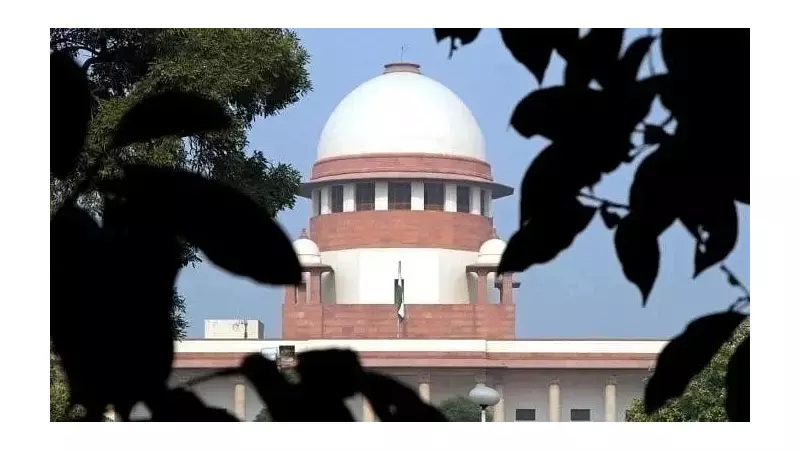
In a significant development that has sent shockwaves through India's legal fraternity, the Supreme Court has expressed strong disapproval of the Madhya Pradesh High Court's decision to condone an extraordinary delay of over four years in an election petition case.
Judicial Rebuke: Supreme Court's Strong Stance
The apex court, visibly concerned about the erosion of judicial discipline, termed the High Court's approach as "unfortunate" while issuing formal notice to the Madhya Pradesh government. This unprecedented move highlights the growing concern within India's highest judicial body about maintaining timelines and accountability within the lower judiciary.
The Case That Sparked the Controversy
The controversy stems from an election petition filed by Congress leader Sajjan Singh Verma challenging the victory of BJP's Sanjay Pathak from the Vijayraghavgarh assembly constituency in the 2013 Madhya Pradesh elections. What makes this case particularly noteworthy is the staggering 1,638-day delay in refiling the petition after initial dismissal for technical deficiencies.
High Court's Controversial Decision
The Madhya Pradesh High Court, in a decision that has now drawn Supreme Court's ire, condoned this massive delay and proceeded to hear the petition on its merits. The High Court had apparently accepted the petitioner's explanation that the delay occurred due to "mistaken legal advice" and the complexity of the case.
Supreme Court's Intervention: A Message to Lower Judiciary
The Supreme Court bench, comprising distinguished justices, has made it clear that such extensive delays cannot be treated lightly. The court's intervention sends a strong message about the importance of adhering to statutory timelines, especially in election-related matters where prompt resolution is crucial for democratic functioning.
Legal Implications and Future Proceedings
The Supreme Court's notice to the Madhya Pradesh government indicates that this case could set important precedents regarding:
- Limitations on condonation of delay in election petitions
- Judicial accountability in time-bound matters
- Standards for accepting explanations for prolonged delays
- Maintenance of judicial discipline across court hierarchies
Broader Impact on Indian Judiciary
This case transcends the immediate parties involved and touches upon fundamental questions about judicial efficiency and the sanctity of legal timelines. The Supreme Court's strong reaction reflects its commitment to ensuring that judicial processes don't become victims of endless delays and procedural laxity.
Legal experts believe this intervention could lead to stricter scrutiny of delay condonation petitions across Indian courts, particularly in politically sensitive election matters. The outcome of this case is being closely watched by constitutional lawyers, political parties, and judicial reformers alike.
The Supreme Court's firm stance serves as a reminder that justice delayed is justice denied, and that even courts must operate within reasonable temporal boundaries to maintain public confidence in the judicial system.





